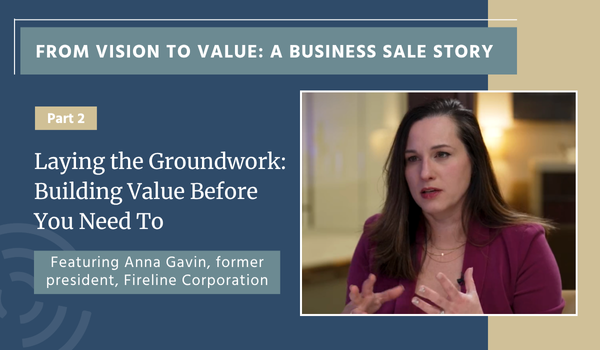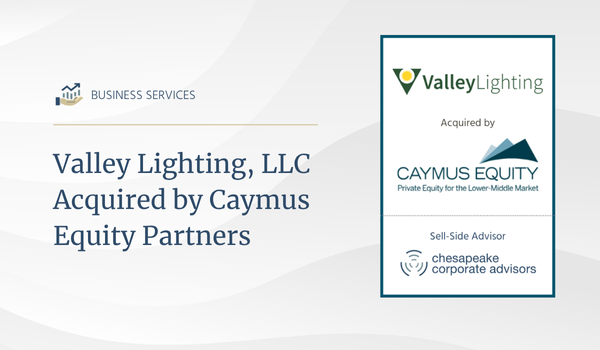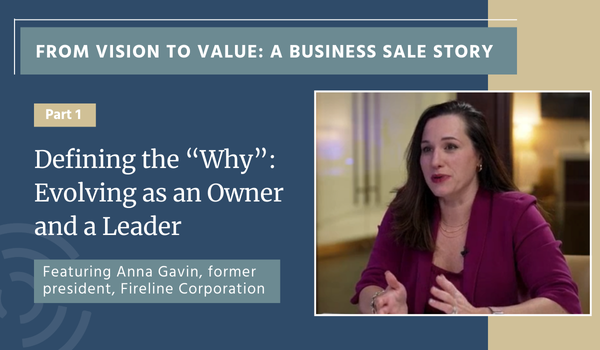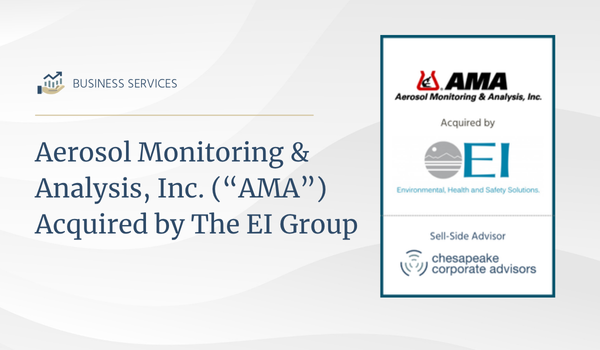When you decide it is time to exit your business, the top question on your mind is likely to be, “How much can I sell the company for?”
Most owners enter the sale process with a figure in mind. Maybe you read about a recent deal for a similar business or heard rumors about how much a colleague’s company sold for. As a proud business owner, you will assume you can sell for at least that, because you have better products, services, and people. Before you know it, you are calculating your after-tax payout and planning how to spend it.
Yet, the headline purchase price is just one part of the deal. To accept an offer that best meets your financial and personal goals, you should consider six other factors.
1. Cash at Closing
The purchase price is not always paid in cash at closing, and therefore not necessarily guaranteed. A $50 million transaction might include $42 million cash at close (guaranteed), a $5 million seller’s note (where the seller agrees to accept a portion of the purchase price as a series of debt payments), and $3 million in earnouts (which are only paid if the company achieves certain financial metrics over time). The more of the purchase price tied up in a seller’s note and/or earnout, the less you receive upfront and the greater your risk. Additionally, if you decide to roll equity to get a “second bite of the apple,” through a subsequent sale, it will result in less cash today but provides additional upside down the road.
2. Deal Terms
A purchase agreement includes many terms, some more advantageous to you than others. A stock transaction will be better for a seller than an asset purchase. If representation & warranty insurance is available but the buyer instead requires an escrow to cover breaches of representation of warranties or a shortfall in net working capital delivered at closing, suddenly the deal could be worth less than you may have originally anticipated. For example, if the buyer expects there is $10 million in collectable accounts receivable and discovers that figure is only $7 million, the buyer could “claw back” the difference from the escrow.
3. Your Employment Terms
Different buyers will have different expectations for your role post-acquisition. If you plan to retire to the beach but the buyer wants you to stay on for longer than you’d like, a higher purchase price might not be enough to change your mind. Your investment banker will message your intentions upfront to avoid conflicts later, but you could still receive offers that do not align with your plans.
4. Cultural Fit
How well does the buyer’s culture align with yours? Culture is often a key determinant of an acquisition’s success, especially given the need to integrate the businesses quickly and effectively. If you plan to stay with the company and could benefit financially from its growth, cultural alignment might weigh more heavily in your selection of a buyer. Regardless of your plans, you may sacrifice purchase price to leave your employees in the hands of a buyer with similar values and culture.
5. Buyer’s Plans for Your Employees
Many owners view their employees as family and feel deeply that they should be taken care of long after they sell the company. Yet, a buyer may not intend to retain your whole team. Determine how important this factor is to you, then entrust your advisors to engage in candid discussions with buyers to assess their plans for your team—acknowledging those plans will evolve as conditions change.
6. Buyer’s Strategy
Some sellers want assurance that the buyer has a sound strategy for running and growing the business. Do they have a methodical approach to integrating the companies’ systems? Are you aligned on their transition plan and confident it won’t jeopardize customer service? While these questions might be more critical if you plan to stay on board or could profit from earnouts, many owners need to feel good about the buyer’s strategy once they take the reins.
An experienced investment banking firm can help you navigate the complexities of evaluating multiple offers, recognizing each seller has different priorities. While the headline purchase price typically gets the most attention, you should weigh all factors before deciding which offer to accept.
About Chesapeake Corporate Advisors
Chesapeake Corporate Advisors is a boutique investment banking and corporate advisory firm providing strategic advisory services (value creation) and investment banking services (value realization) to companies with revenues between $10 million and $200 million. For more information, visit www.ccabalt.com or call 410.537.5988.





